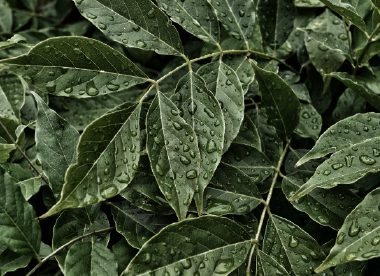Several natural plant extracts have been used for centuries to regulate the hormonal changes in women, supporting them throughout various stages of their fertility cycle. In this article we’ll be looking at two extracts we believe are driving this expanding category – Evening Primrose Oil and Borage Oil. With consumers being more aware of natural remedies and proactive in managing their health, natural hormonal support supplements are constantly gaining popularity.
Women look for ways to tackle the symptoms of hormonal changes which are usually most noticeable during PMS or Menopause. In most serious cases Hormonal Replacement Therapy (HRT) is advised by medical professionals, however, many women opt for more natural ways of relieving the unpleasant symptoms. A report published in Menopause in 2015 surveyed postmenopausal women aged 50 to 65 years and found that 70.4 percent used natural remedies, with Evening Primrose Oil (EPO) being the most commonly used.

EPO together with Borage Oil owes their popularity to being great sources of GLA (Gamma Linoleic Acid), an essential fatty acid. This form of omega-6 helps the body to generate substances that reduce unwanted inflammation and cell growth. Unfortunately, in a typical western diet, there are very little foods that contain good sources of GLA, meaning supplements might be needed to meet the requirements to support good health.
Studies show that GLA helps to balance hormone levels by regulating the production of prostaglandins, which are hormone-like chemical messengers involved in supporting hormonal balance management and impacting the body’s inflammatory processes such as swelling, stiffness and pain. So anyone battling to control symptoms of PMS or menopause may find Borage Oil to be beneficial.
Already a popular remedy, it’s massively in demand and is expecting to grow even further. The global Borage Oil market is expected to witness growth of 5.4% from 2016 to 2024 and reach USD 54.9 million by the end of the forecast period, according to a new report by Grand View Research, Inc.
Hormone Balance Remedies
Fluctuating hormone levels manifest themselves in several different ways and can severely interfere with women’s daily lives. Many of the symptoms commonly associated with PMS and menopause, such as mood swings, breast tenderness and skin changes, are triggered by these hormone imbalances.

Mother nature is well equipped with lots of natural remedies that help battle the symptoms of Menopause and other hormonal fluctuations. In addition to Evening Primrose Oil and Borage Oil, good examples of plants renowned for their ability to relieve some of the hormone-related ailments are Black Cohosh, Flaxseed Oil, Soy Isoflavones and Sage. They work in their own ways, affecting different functions in the body, but in this article, we’ll be focusing on the first two, which are key sellers for this category.
Evening Primrose Oil
Evening Primrose Oil (EPO) is the oil derived from the seeds of the evening primrose (Oenothera biennis) plant native to North America but also found in Europe, which has a number of popular uses and is widely available in supplement form.

Being a rich source of omega-6 essential fatty acids, EPO is often used by women for relieving symptoms of premenstrual syndrome (PMS) such as breast tenderness, feelings of depression, irritability, and swelling and bloating from fluid retention. Researchers believe some women experience PMS because they’re sensitive to normal prolactin levels in the body. GLA converts to a substance in the body (prostaglandin E1) thought to help prevent prolactin from triggering PMS. According to a 2010 study, the GLA in EPO is thought to reduce inflammation and help inhibit prostaglandins that cause cyclical breast pain. The study found that taking daily doses of EPO or EPO and vitamin E for six months decreased the severity of cyclical breast pain.
Although more research is needed to support these statements, EPO has also been found helpful with endometriosis and uncomfortable symptoms like as hot flashes, one of the most common side effects of menopause. One of the studies found that women who took 500 mg daily of EPO for six weeks experienced less frequent, less severe, and shorter hot flashes.
In addition to supporting hormonal balance in women, evening primrose oil is also used to treat eczema and can be helpful with relieving arthritis-related pain.
Borage Oil
Also known as starflower oil, borage oil is pressed from the seeds of the Starflower plant found throughout the United States and Europe, and is also a rich source of gamma-linoleic acid (GLA) Due to that, it provides a number of benefits for both men and women, including heart function, skin appearance and vision. However, it is thanks to its role as a hormone regulator that starflower oil benefits female-specific health conditions such as PMS and menopause.

Becoming famous for having the highest GLA content compared with other essential oils, Borage Oil can be helpful when treating a wide range of both short- and long-term ailments. As confirmed by the Cleveland Clinic, due to its GLA content and its anti-inflammatory and antioxidant properties, Borage Oil may be able to reduce discomfort related to PMS (breast tenderness, anxiety, mood swings and skin breakouts), menopause (hot flashes and night sweats) and other hormonal imbalances, including adrenal insufficiency.
Buy Quality Products From Renowned Supplier
At HTC we offer a selection of Evening Primrose Oil and Borage Oil capsules ranging from 500mg single ingredient softgels to 1000mg compound formulas. You can view the whole Hormonal Support listing on our Stock List page to see which products are available. For more information on our Hormone Support range or for a free instant quote, contact our sales team now on 01923 652 529 or email sales@htc.co.uk.
*Claims for food supplements mentioned in this article are not meant for general public, but are purely for information of food supplement industry professionals. Please note that the claims are not authorised by European Food Safety Authority for use on labels or marketing materials.

